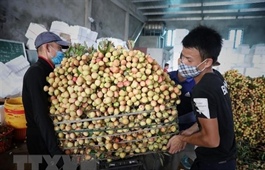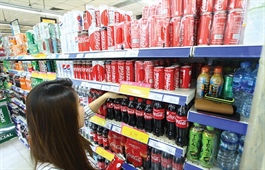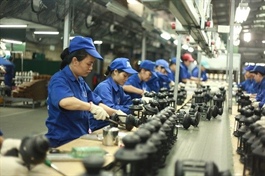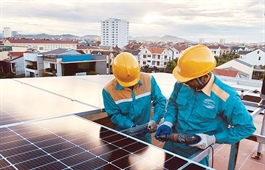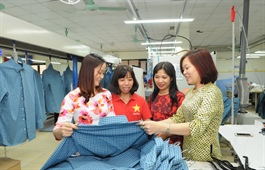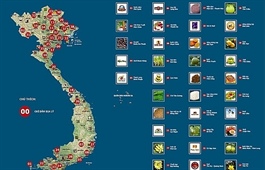What Vietnam needs to produce Covid vaccines under license
What Vietnam needs to produce Covid vaccines under license
Vietnam should standardize manufacturing facilities and get expertise if it wants to make Covid-19 vaccines, experts have said.
Professor Thomas Preiss of the John Curtin School of Medical Research, Australian National University, said the production of mRNA vaccines is a new technology and involves several distinct steps.
Preiss said mRNA is the basis for certain Covid vaccines like those made by Pfizer-BioNTech and Moderna, while AstraZeneca uses the viral vector technology.
He said the more conventional AstraZeneca vaccine could probably be manufactured by an established vaccine producer in Vietnam of suitable size. Setting up the new technology for mRNA production would be more complex but still achievable. The country does not need to build a huge plant to make mRNA vaccines, and only needs several ordinary-sized clean rooms in which most of the processes could be carried out, he said.
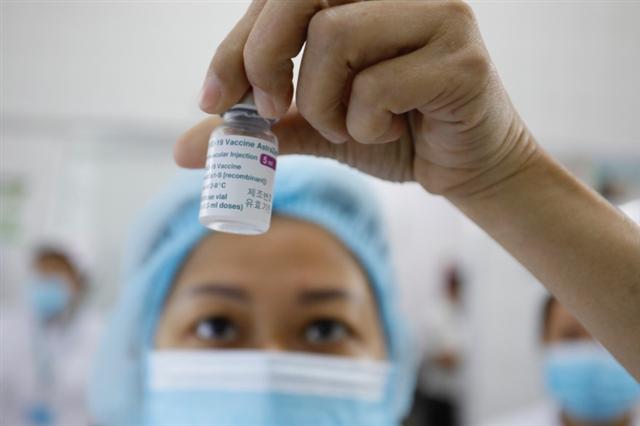
A health worker in HCMC Hospital for Tropical Diseases holds a dose of AstraZeneca vaccine in March, 2021. Photo by VnExpress/ Huu Khoa.
|
Regardless of vaccine type, "Vietnam will have to build facilities that complies with the high medical manufacturing standards to make an efficient and safe Covid-19 vaccine."
For Vietnam to have an end-to-end solution for mRNA production it would need a facility to make the gmp-grade DNA plasmid, and a specialized bioreactor for the making of the actual mRNA using that DNA as a template and purify it. Another specialized device will take the purified mRNA and package it up into lipid nanoparticles. Finally, the formulated mRNA vaccine will need to be dispensed into ampules and packaged for shipment. This last ‘fill-and finish’ step is similar for any type of vaccine.
In the production of any vaccine, there are multiple issues a country has to address like having the facilities, raw materials and supply lines, Preiss said. Besides, the patent regime for mRNA vaccines involves multiple sub steps that are patented separately, he said. Licenses would have to be sought from multiple entities.
If Vietnam wants to make the mRNA vaccine, it also has to source a number of specific kinds of building blocks and other reaction components. The supply lines are different from those making the AstraZeneca vaccine with respect to production and packaging.
Citing the case of Australia, which is already making the AstraZeneca vaccine, he said a major pharma company has been tweaking its existing factory for its production. With mRNA vaccine being based on new technology, there is currently no established manufacturing line in Australia but the government has just begun an Approach To Market process to encourage commercial parties to establish a sovereign mRNA production facility for the country.
Preiss said it is not beyond the capacity of Vietnam to produce vaccines, and if it is ambitious about the development of its biotech industry, establishing mRNA production could be a good move.
It is not too complex for a developing country to make vaccines, even mRNA vaccines, if it has the resources, he assured, pointing out that India, a developing nation, is the largest vaccine manufacturer in the world.
On May 14 the World Health Organization (WHO) had said it was considering a proposal by an unidentified Vietnamese vaccine manufacturer to make an mRNA-based Covid-19 vaccine.
Last week Vietnam asked the U.K. to consider transferring vaccine technologies to Vietnam.
Nitin Kapoor, chairman and general director, AstraZeneca Vietnam, said the company would consider transferring technology to Vietnam in future if there is a capable partner in the country to produce medicines, including vaccines.
AstraZeneca had begun a survey to check bioreactors in Vietnam for Covid-19 vaccine production, but stopped it because the need for the vaccine was urgent around the world as the pandemic raged.
Speaking about infrastructure, Dr Sarah Schiffling, senior lecturer in supply chain management, Liverpool John Moores University, the U.K., said Vietnam would need suitable facilities for production on a desired scale, appropriate technology and sufficient workers with the knowledge to produce vaccines.
The supply chain is possibly the most overlooked element in vaccine production, she said. It requires many different items from the ingredients of the vaccine to things like filters that are used in the production process and the vials in which the vaccines are filled.
In a time of such extremely high demand, it could be difficult to have sufficient capacity in all stages of the supply chain from raw materials all the way to the finished vaccines, she said.
"With such a sensitive product, it is essential that excellent quality can be guaranteed throughout the production process."
She recognized that Vietnam has a fairly developed pharmaceutical industry but said it would need to identify specific companies to make Covid vaccines.
But it has to consider the wider environment, including vaccine storage, transportation and distribution, she said.
Tinglong Dai, professor of operations management and business analytics, Johns Hopkins University Carey Business School, the U.S., said making vaccinesbased on mRNA isa niche technology, and so the training could take years, and the country should instead get experts from companies like Pfizer, BioNTech and Moderna.
Vietnam would need to get the technical knowhow to make things work and ensure vaccine quality, and that is why it needs technology transfer, he said.
Optimistic about Vietnam's capacity
Dai said it is "absolutely technically possible" for Vietnam to produce Covid-19 vaccines since it has a great workforce with a lot of educated workers.
The U.S. has expressed interest in expanding Covid vaccine production in Asia, he said.
Vietnam "does not need to produce everything" but instead could collaborate with partners, for example South Korea, to produce vaccines, he said.
Moderna and Novavax have signed a deal with the South Korean government to manufacture their Covid-19 vaccines.
Dai pointed out that a country that wants to produce Covid vaccines needs to consider both supply and demand, and there are uncertainties about the demand in the near future since people might prefer newer vaccines.
"Without enough demand, I don't think the proposed manufacturing center will be feasible."
But if the government shows strong political will and commitment, companies could be confident enough to develop and produce vaccines.



